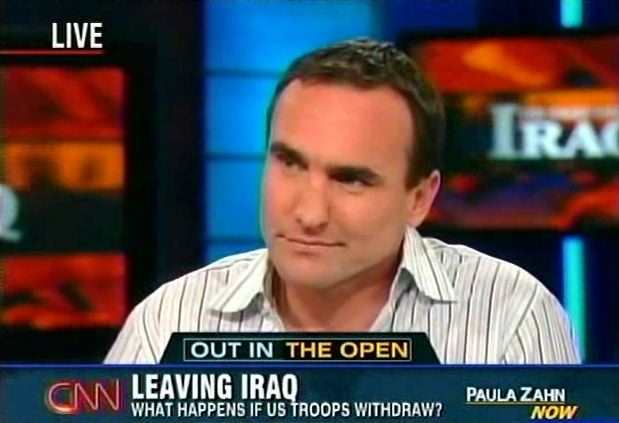PZN: "America broke Iraq, now America must stay until it's fixed."

Click photo to play
Length: 3:09
PAULA ZAHN: I want to turn now to our Baghdad correspondent, Michael Ware.
You have been covering Baghdad and the war for years. What do you see once U.S. troops withdraw?
MICHAEL WARE, CNN CORRESPONDENT: Well, a lot of blood will be shed, Paula. I can't begin to imagine how much. Politically, already, Iran is much more influential in Baghdad than Washington is. The...
ZAHN: What are the obvious signs of that, besides weapons...
WARE: Well...
ZAHN: ... coming into the country?
WARE: Well, the fact that most of the ministries, the individuals and their parties were created in Iran during the 1980s. The building blocks of political power in Iraq are Iranian-linked. These are parties that were forged in Tehran as people fled from Saddam. They are the ones who have now returned, and under the democratic system that America created, they're the ones who capitalized and have seized power.
They're the ones running the government death squads. They're the ones who own the Interior Ministry, the hospitals, the, you know, transport system, everything. So, Iran would consolidate its power and extend. You would see Western part of Iraq turn into essentially one large al Qaeda training camp.
You would see that Iraq's Sunni allies -- America's Arab allies -- Saudi Arabia, Jordan, assisting the Sunni insurgents, and, indeed, turning a blind eye to al Qaeda. So, that's the most immediate -- you would have regional conflict brewing.
ZAHN: So, who would be in place, then, to protect Iraqi civilians? No one?
WARE: No one.
ZAHN: Yeah. We just heard about one of the security guards talking about...
WARE: It's in no one's interests. I mean...
ZAHN: ... how no one is brave enough to protect them now.
WARE: Listen, this government right now, many members of it, or many of the most powerful factions within it, all they want to do is see the Americans get out of the way, so they can unleash their forces on the Sunni population.
ZAHN: We heard a staggering report today from the inspector general of Iraq, essentially saying that seven out of eight U.S. reconstruction projects that were once considered successful are failing.
So, if U.S. troops pull out, what does that mean? All that work is down the drain?
WARE: Well, there is no work. It's already down the drain. I would like to see what they define as successful.
I have not seen one hugely successful American-backed project. I mean, the infrastructure is not there. The delivery of this money and aid and construction has not happened. And, anything that the Americans touch, the insurgents blow up.
ZAHN: We have just heard your prediction what happens if U.S. troops completely withdraw. How many years are they going to have to be there to prevent what you're talking about happening?
WARE: Well, one American two-star general said to me it may not require the troops we have there now, 20 combat brigades there for 15 years, but it's going to require a long-term commitment.
Any insurgency has never been defeated in anything less than about 12 years. America broke Iraq, now America must stay until it's fixed.
ZAHN: Michael Ware, thank you.
WARE: Thanks, Paula.
ZAHN: And we know you have a series of reports coming up. We will be looking for them.
